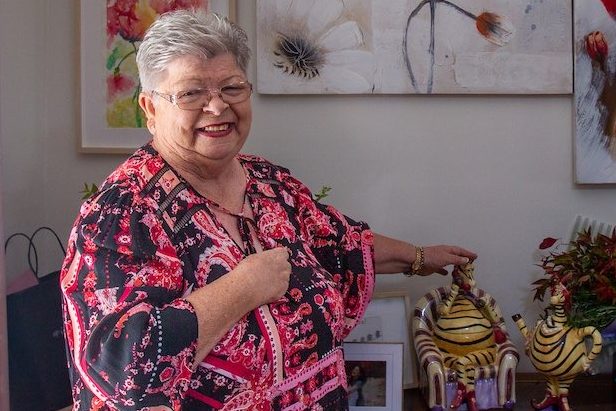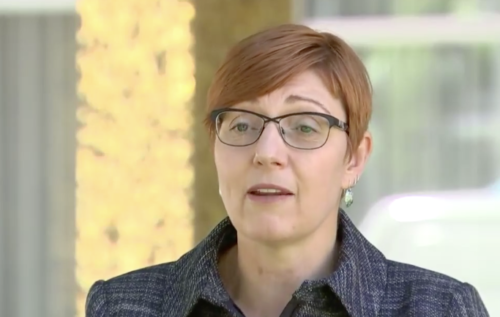ONE can only speculate how the discussion would have gone if Tony Abbott had survived as prime minister long enough to meet Barack Obama during this week’s summit circuit.
Obviously Abbott would not have pre-emptively published an op-ed in The Australian outlining his views on what should be done next in the fight against Islamic State. But he might have put those opinions to Obama, making it less a meeting of minds between Australian and American leaders than we saw when Malcolm Turnbull spent 90 minutes with Obama in Manila.
Abbott urges ground troops and a greater Australian contribution to the conflict. But Obama doesn’t favour more “boots on the ground”, and Turnbull’s theme has become the need for a political solution, involving pragmatism and compromise.
Abbott and Obama were never an easy fit; Obama and Turnbull look a better one.
Nevertheless the Americans have one current gripe with Australia – over not being forewarned that a Chinese company, Landbridge Group, was about to be given a 99-year lease on the Port of Darwin.
This deal, announced more than a month ago, has turned into a slow burn issue.
The leasing was in the hands of the Northern Territory government. The bid did not have to formally go to the Foreign Investment Review Board. However, the Department of Defence was consulted and had no problem.
Defence Secretary Dennis Richardson points out that he, chief of the Defence Force Mark Binskin, ASIO head Duncan Lewis and Navy chief Admiral Tim Barrett all agree that leasing what is a commercial port to a Chinese company “does not impinge on our defence and security interests”. To the extent any issues might arise, “they can be mitigated quite readily”. If it came to that, the lease could be overridden.
Critics have a very different take. Peter Jennings, executive director of the Australian Strategic Policy Institute, argues the decision was “a deep strategic mistake”.
He notes this is “our only large scale port really between Broome and Cairns”, and observes that the lease’s length means we are as far from its end as we are, in the other direction, from the Gallipoli landings. “It’s a long period of time – during which I think it’s impossible for anyone to say precisely how China will evolve and whether our interests will coincide or clash.”
While the security issues are being hotly contested, there can be little argument over the proposition that the Americans should have been notified ahead of an announcement. American officials were angry when they learned of the decision immediately after the AUSMIN talks in Boston, attended by Defence Minister Marise Payne and Foreign Minister Julie Bishop. And this week Obama chipped Turnbull about the lack of notice.
At Thursday’s news conference Turnbull made a joke of the oversight, saying when American officials raised the matter with him some weeks ago “it was put to me that the first thing they had read about it was in The Wall Street Journal. And my observation was … they should invest in a subscription to the Northern Territory News, because it was not a secret.”
The Americans take such things seriously. A comment from a US embassy spokesperson on Thursday could be read between the lines: “Australia alone determines its criteria for foreign investment projects related to its infrastructure. As strategic allies, the United States and Australia discuss a wide range of topics.”
Turnbull’s trivialisation mightn’t go down so well.
The decision about the port is and should be Australia’s alone. But given the US’s deepening military engagement in northern Australia, involving troop rotations and aircraft movements, the Americans had an interest in being told what was planned. This would have been diplomatic courtesy and proper process, not any compromise of Australian sovereignty.
Richardson concedes the timing issue. “We should have advised them. It would have been the sensible thing to do – but it would not have made any difference to the substance of the issue.”
But he says there was only a few hours notice of the NT October 13 announcement and within 24 hours of it he – in Washington after the AUSMIN meeting – had briefed the deputy secretary of the US Defence department, Robert Work.
Independent senator Nick Xenophon proposes next week to move for an inquiry into the Port of Darwin deal. His suggested terms of reference include “best practice for Commonwealth consideration of the strategic implications of potential foreign control of critical infrastructure”.
Crucial to the chance of the inquiry getting up will be the attitude of Labor. Bill Shorten next week will be briefed, together with Shadow Treasurer Chris Bowen, by Richardson and Lewis.
While Chinese buyers have had success in securing the Port of Darwin lease, Treasurer Scott Morrison on Thursday dashed the immediate hopes of Chinese bidders aspiring to purchase the vast Kidman pastoral empire – 1.3% of Australia’s total land area.
Ruling out a foreign acquisition on national interest grounds, Morrison cited as a factor national security. Half of the largest station, Anna Creek, is in the Woomera Prohibited Area (WPA) military testing range. But he indicated he could favourably consider a re-calibrated proposal – which no doubt would need to exclude the Woomera land.
Kidman’s managing director Greg Campbell had his own view on the security issue. “Cyber espionage around the world seems to operate quite successfully in its own right without the need to acquire an outback cattle property like Anna Creek,” he said.
![]()
Michelle Grattan, Professorial Fellow, University of Canberra
This article was originally published on The Conversation. Read the original article.
Who can be trusted?
In a world of spin and confusion, there’s never been a more important time to support independent journalism in Canberra.
If you trust our work online and want to enforce the power of independent voices, I invite you to make a small contribution.
Every dollar of support is invested back into our journalism to help keep citynews.com.au strong and free.
Thank you,
Ian Meikle, editor





Leave a Reply